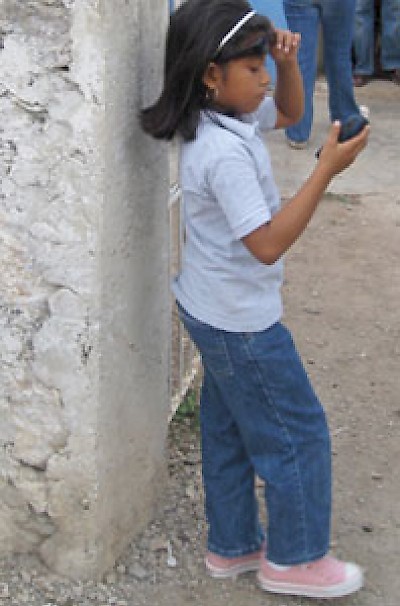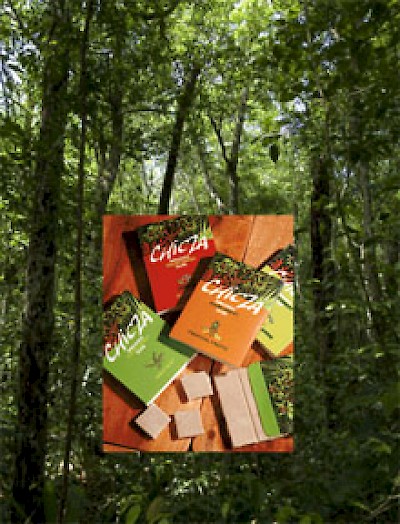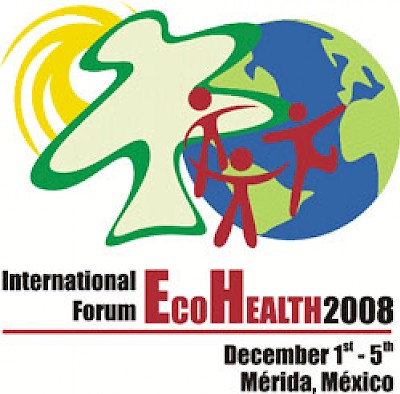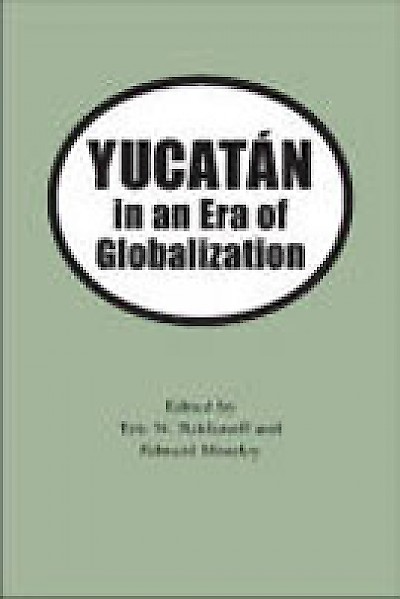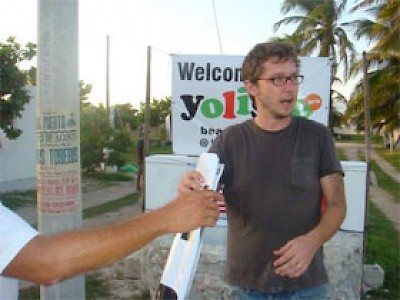Yucatan News: Children and Chicle
News starting January 05, 2009.
New Year’s Resolutions
As we begin this New Year, we are making the same resolution we make every year: to manage our time more effectively. We have no doubt that the monster will win again, at least at one or two points throughout the year, but we still have hope that we will use common sense and schedule our time at least a little better than in the past. Those who are still North of the Border often imagine that we expats are all on permanent “laid back” vacation in the tropics. They have no idea that our “dance card” is full to overflowing and we often are at our wit’s end over it. For those of our readers who are new expats… a word to the wise should be sufficient. If it isn’t, and if you find yourself overloaded on commitments, you are not alone. HERE is some great “overload” advice from ExpatWomen.com.
Updates from Kitty:
For those who live at the beach, there is news on several topics.
- First, for those of us who support children in the Apoyo Program for Students in Progreso, all 50 of our children have received their Christmas presents and books, and you should have your update e-mails (both academic and financial) by now. We are pleased to report that all of the high school students’ grades are above 80%, with 2 coming in third in their classes and one with a 95% GPA, which places her first in her class.
- Next, don’t forget to attend the Reuniones de Las Mujeres de la Playa (The Beach Gals). Membership is open to all women who live either full or part-time along the coast of Yucatan, so if you are spending your winter at the beach, please know that you are welcome to meet with the Beach Gals on the First Monday of every month.
Location: Buddy’s Restaurant on the Malecon in Progreso
Dates and Time: All First Mondays, Nov. 3 through April 6, at 9:30 AM.
Admission: Free but BYOB (buy your own breakfast)
FYI: Will Be Listed on Weekly Events Calendar so no one will forget - Protección de Perros y Gatos de ProgresoThis is the protective animal welfare organization for the area in and around Progreso. Anybody and everybody is welcome to join this group but they should know that all business meetings are conducted entirely en español. Donations toward the building fund can be made in USD or pesos only (no Canadian funds!) and should be payable to: Protección de Perros y Gatos A.C. and mailed to P.O. Box 30; Progreso 97320; Yucatán, México. This is a hardworking, community-minded group, so look for plenty of volunteer opportunities here.
Location: Flamingo’s Restaurant on the Malecon in Progreso
Dates and Time: All Last Mondays, 8:00 PM
Admission: Free but BYOD (buy your own dinner)
FYI: Will Be Listed on Weekly Events Calendar so no one will forget - Fundraiser: Protección de Perros y Gatos de Progreso
Progreso's humane society, Protección de Perros y Gatos cordially invites you to their annual fundraising breakfast. We suggest you purchase your tickets early this year as few, if any, are expected to be available at the door. There will be a raffle at breakfast with some really terrific prizes to celebrate the groundbreaking of the new clinic in Progreso this past October.
Date: Saturday, February 21, 2009
Location: Flamingo’s Restaurant on Progreso’s Malecón.
Time: 9:00 AM
Admission: Tickets are available for $150 pesos per person from board members Betty Bates de Harmes (Cel: 999 199-9638) and Annette Baumann (Cel: 999 263-7859) or at the office of veterinarian Beatriz Carvajal on Calle 25 #128-F x 68 y 70 in Progreso.
Coming Soon: Proyecto Itzaes’ Organic Farmer’s Market (in Cholul?)
This very professional young lady is Peregrina. She is 9 years old and learning to use GPS before setting off to work on a vegetation survey being conducted in Ixil under the supervision of Proyecto Itzaes. Proyecto Itzaes (PI), a 501c3 non-profit organization is a free, community service based, educational program in Yucatán, Mexico, founded in 1995 by Cynthia Wilber, Education Coordinator at Stanford University’s Jasper Ridge Biological Preserve. Proyecto Itzaes serves communities where traditional subsistence lifestyles dependent on farming and seasonal fishing can no longer support families. It is currently operated by Cindy’s son, who resides in Chicxulub Puerto, and has grown to now support successful branches in 5 villages. You can read all about their reading, special education, cultural preservation, health, and environmental programs HERE. But that isn’t all. Soon, there will be a new, organic Farmer’s Market (we think in Cholul) with all kinds of good things to eat, plus the best handicrafts in all of Yucatan. The best characteristic of Proyecto Itzaes, for us, is the support they give to their high school graduates who want to go on to college. It is decidedly unfair to have a student do well in high school and then tell them that, because they are too poor or because they live too far out in the country, they will never be able to earn a better life for themselves and their families. Proyecto Itzaes has changed all of that and we heartedly recommend that everyone does whatever they can to support this effort – including watching for the opening of the new, organic Farmer’s Market.
More Assisted Living Coming to Mexico
The buzz over the number of Americans likely to retire in Mexico is growing louder with each passing day – and assisted living investors are gearing up to meet their needs. In addition, if you get the feeling that, as you near retirement, you are being taken by the arm and ushered to the border – you might not be far from the truth. Amid U.S. headlines of drugs and murder in Mexico, the U.S. Embassy finally admits that it is as safe, if not safer, for Americans in the interior of Mexico than it is in the U.S. In addition, the cost, even for assisted living, in Mexico, is about 1/3 the cost for the same services in the U.S. As we expats in Yucatan look toward our own futures and our own need for such services, it is important that we keep up with current trends throughout Mexico. The Buffalo News has an excellent article on this subject.
Survey of Potential 2009 Migration to the U.S.
The Indemaya took advantage of the Orange Festival in Oxkutzcab to assess whether any of the people intend to legally or illegally enter the U.S. in 2009. Few, if any, responded in the affirmative. For those who go illegally, the cost of the trip is roughly $3,000 USD and there is no guarantee of a job when they get there. Those who are already in the U.S. are reporting that they now have mostly part-time work, when they are used to holding down up to two full-time jobs. Those who are legal migrants and came home for the holidays indicated that they are not applying for the necessary documents to return to the U.S. They believe that it is safer to wait out this worldwide financial crisis in a local economy in which they know they can survive.
Chewing Gum: Everything Old is New Again
We have all read the history of Yucatan, and the importance of the chicle industry to the peninsula. Today, this industry is making a comeback. As it turns out, it costs £150m a year to clean chewing gum off of the streets in the U.K., but a wonderful, “new,” organic chewing gum, made from chicle from the Yucatan Peninsula, is biodegradable and is going to save all that money for U.K. taxpayers. The gum even has a snappy new name: Chicza Rainforest Gum, because no trees are destroyed to make it. This is a great story and you can read all about it HERE.
Food Safety: Consider Buying Yucateco
When Mexican agricultural products are suspected of having the potential to cause health problems for Americans, there is a great hue and cry throughout the land and the headlines go on for months. With little more than a footnote in the news, 30 American slaughterhouses were recently stripped of their certification to export meat into Mexico because of unsanitary conditions in their plants. Since then, 20 have been reinstated, but with controls that are much stricter than before. The full article, along with a link to a list of the problematic slaughterhouses and brand names is HERE. Every kind of meat, seafood and vegetable you can imagine is grown or raised or fished right here in Yucatan. Expats often go to the big-box stores and buy American brands they recognize, only to now find those very names on the list of banned slaughterhouses and brands. In order to protect our own health and safety, this is the best time we can think of to get to know local butchers, as well as seafood, vegetable, and fruit vendors.
Merida’s Environmental Conference in Cairo’s News
We are quite proud of the fact that many international conferences in many disciplines are held in Merida. At the beginning of December, Merida hosted a week-long International Ecohealth Forum 2008, in conjunction with the Second Biennial Conference of the International Association for Ecology and Health, which was attended by over 550 EcoHealth researchers, community representatives, policy-makers, students and public health specialists from 82 countries from the four corners of the world. The National Institute of Public Health (INSP) of Mexico hosted the IEF 2008, in collaboration with Canada's International Development Research Centre (IDRC), the International Association for Ecology and Health (IAEH), the Oswaldo Cruz Foundation, Brazil (FIOCRUZ), the Institute of Ecological Research, Brazil (IPÖ), the Faculty of Veterinary Medicine and Zootechny of the University of Sao Paulo, Brazil (USP), and the Pan American Health Organisation (PAHO). We are so glad that so many nations attended this conference because the health and environment of the planet are of paramount importance to us; but we are also especially proud of our city, which is high on the list of places to hold significant global conferences of this kind. You can read all about this important event HERE.
Merida: Skate Mexico 2009
If you are an inline skater, this is for you. Skate Mexico’s training camp and road skate (to Uxmal) are going to be held again in Merida in March. Click HERE to get all the information.
Good Books by Smart Women
In our weekly web travels, we often run across blogs written by tourists as they pass through our area. Some of these blogs – and the people who write them – are exceptionally good. One blog, Full Life, Good Death, chronicles the journeys of Nancy Manahan & Becky Bohan, authors of Living Consciously, Dying Gracefully: A Journey with Cancer & Beyond.. Something about the flavor of their blog, or maybe it was their book, made me think of our friend Karen Blue’s “articles,”archived on MexConnect, as well as her book Midlife Mavericks: Women Reinventing Their Lives in Mexico. Maybe its just that we like smart women who write good books. In either case, please visit both sites highlighted above. Each is well worth the read.
Interested in Economics? There’s a New Book Out About Yucatan.
If you are interested in any kind of global business venture in Yucatan, this book is probably a “must read” so that you can better understand the society in which you are conducting business. HERE is a review, from the Tuscaloosa News, of a new economics book called Yucatan In An Era Of Globalization / ed. by Eric N. Baklanoff and Edward H. Moseley. - Tuscaloosa, Ala. : Univ. of Alabama Press, c 2008. - XVI, 192 S. : Ill., Kt. ISBN 0-8173-5476-X=978-0-8173-5476-3. The book, a collection of 8 essays, is published in cooperation with the Alfredo Barrera Vasquez Center for Yucatecan Studies. It includes bibliographical references and an index. The 8 essays include:
(1) Yucatan's prelude to globalization / Edward H. Moseley and Helen Delpar
(2) Globalization and the evolving port landscape of Progreso / Michael S. Yoder
(3) A wheel of fortune: Yucatan's entrepreneurial elite from the revolution to globalization / Luis Alfonso Ramirez
(4) Yucatan, Mexico's other maquiladora frontier / Eric N. Baklanoff
(5) Tinum, Yucatan: a Maya village and the lights of Cancun / Paula R. Heusinkveld
(6) Chan Kom: tourism and migration in the making of the new Maya milpas / Alicia Re Cruz
(7) From Tallapoosa to Tixkokob: twocommunities share globalization / Edward H. Moseley
(8) Embracing community : an alternative tourism for Yucatan / Kathleen R. Martin and William A. Martin Gonzalez
You can purchase the book here: Yucatan in an Era of Globalization
Young Gringos in Yucatan
Over the course of a year, we probably see in the neighborhood of 2,000 to 3,000 international college students in Yucatan. Most are here for a semester at one of the local universities. Of course, we have Malcolm and Jillian, at Yolisto, as our resident “kiddos,” but we also have a few young gringos in other parts of the state as well. We would like to introduce you to a blog called Hungry Gringos by Lorna and Justino. Lorna is a young archaeologist conducting research in an unnamed Mayan village somewhere in the vicinity of Tizimin. They are currently at home somewhere in the Northeast U.S., but will be back in the village soon. Both of these young people have the kind of sense of humor that is a requirement for living in Yucatan and the “funnies” zing throughout their blog. Whether its chickens passing through their bedroom or surviving the cat-scratch fever she brought with her from home, Lorna and Justino’s Hungry Gringos is well worth keeping up with.
Teacher Resources
If you are teaching English in Yucatan, Tools for Educators has some of the best worksheets, and generators for crossword puzzles, word finds, dice, board games, bingo and domino games, and even spelling sheets. Visit their website HERE for access to some of the best tools for educators we have ever seen. You might also want to check out Lanternfish, since they have a separate link for teaching English to adults, and they also have a link for some really nice short conversations.







